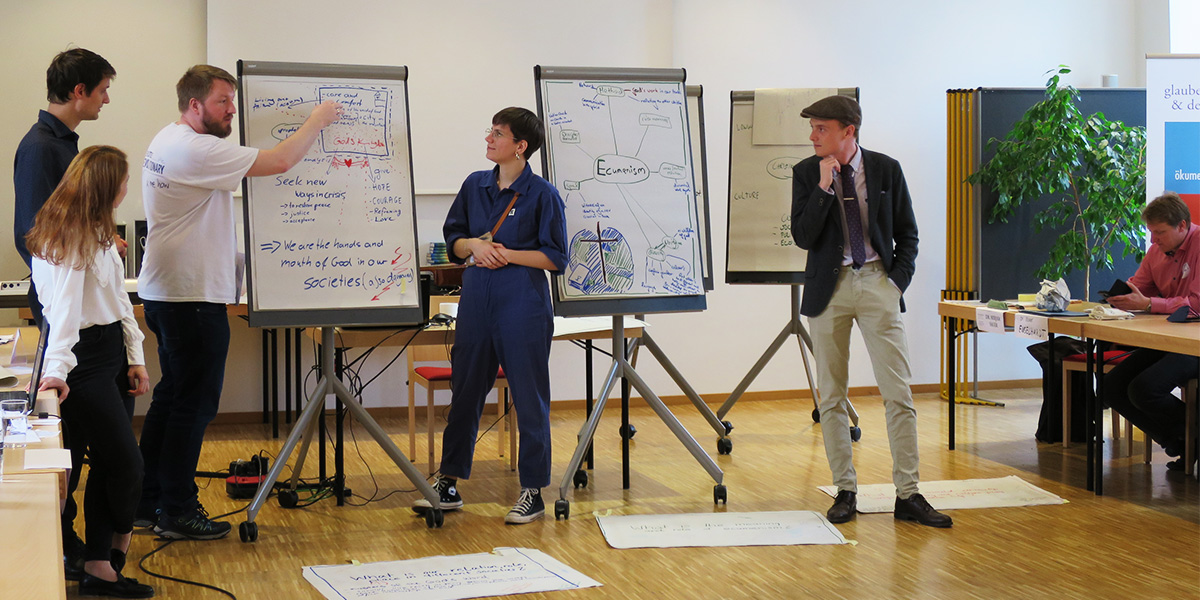Theses about Nationalism, Identities and Christian Churches
- Everyone has local and/or regional roots and is living in such a context. A cosmopolitan way of life tends to deny these roots and contexts. Identifying with a „nation“ seems to overcame this tension.
- Nationalism can turn toxic, when it becomes exclusive (working with in- and out-groups) and can be used to manipulate a people. Nationalism (inclusive or exclusive) offers an identity, which a free global environment can’t provide.
- The positive alternative – we call it bottom-up communitarism – tries to build open and inclusive communities and nations.
- Any identity has two sides – it is a social construct, which can be experienced in context, and it may be a strong feeling. Institutions (churches, states) always highlight a certain identity. For a non-beliefing politician, who is using religion in politics, religion will be only a social construct, while for the believer religion has an additional transcendent aspect.
- The core of churches‘ identity is Jesus Christ. Belonging to church does not mean to leave behind national, regional, sexual or any other identity. (refer to Gal 3,28 and/or Romans 3,29-31).
- As Churches we cannot stay for ourselves, but need to be ready to serve society (diaconia) and to build up relationships with other Christians/churches (mission and ecumenism) – Math. 28, 19-20.
- Inspired by Martin Buber and Emanuel Levinas we see, that the encounter with Christians from other traditions has a transformative power – this is Gods work in people.
- Nobody and no institution is alone an executor of Gods will. God is acting in the world through the hands of different people.
- The message is higher than the language. National languages and cultures are a vehicle for the Gospel (inculturation). Experiencing different languages and cultures leads us to the catholicity (one undivided christian) of church. Speaking different languages is often weakening the national identity, in Christianity the opposite is happening.
